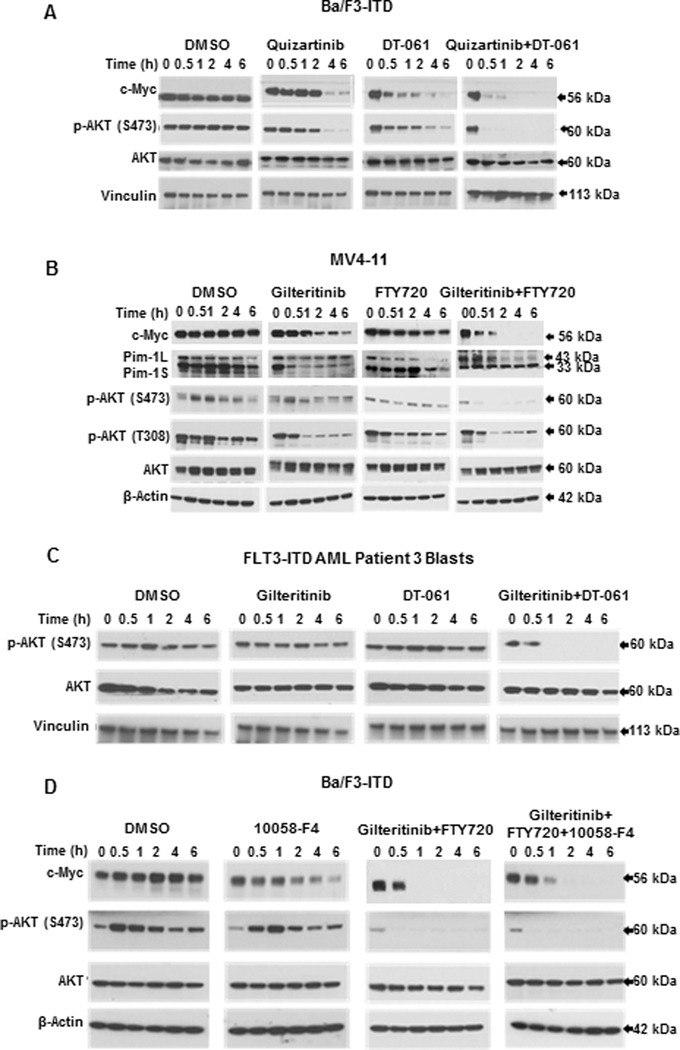Figure 5. PP2A-activating drug and FLT3 inhibitor combination rapidly inactivates AKT,

A. Treatment of Ba/F3-ITD cells with DT-061 and quizartinib combination causes rapid decrease in p-AKT (S473). Ba/F3-ITD cells were treated with 1 nM quizartinib and/or 10 μM DT-061, or DMSO control, and protein expression was measured by immunoblotting at the time points shown. B. Treatment of MV4-11 cells with gilteritinib and FTY720 combination rapidly decreases p-AKT (S473) and (T308). MV4-11 cells were treated with 15 nM gilteritinib and/or 2 μM FTY720, or DMSO control, and protein expression was measured by immunoblotting at the time points shown. This blot is also shown in Figure 2B. C. Treatment of FLT3-ITD AML patient blasts with gilteritinib and DT-061 causes rapid decrease in p-AKT (S473). FLT3-ITD AML patient blasts were treated with 15 nM gilteritinib and/or 10 μM DT-061, or DMSO control, and protein expression was measured by immunoblotting at the time points shown. This blot is also shown in Figure 2C. D. c-Myc inhibition does not inactivate AKT. Ba/F3/ITD cells were treated with the c-Myc inhibitor 10058-F4 (100 μM), and p-AKT (S473) and AKT protein expression was measured at serial time points. c-Myc inhibition did not inactivate AKT, consistent with c-Myc being downstream of AKT. Immunoblots of Ba/F3/ITD cells treated with gilteritinib and FTY720 without and with 10058-F4 are shown as controls.
